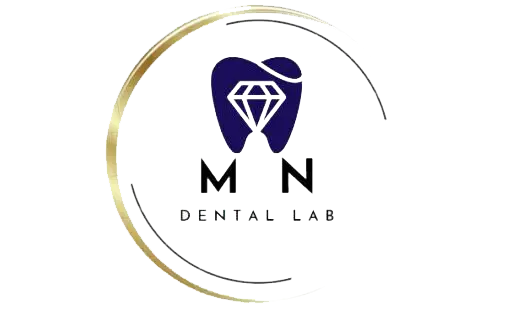Root canal treatment in Hoboken, NJ, is integral to dental health, effectively combating tooth decay and preserving natural teeth. This procedure involves the removal of infected pulp and nerve tissue. Hoboken’s infrastructure is well-equipped to provide this essential service. Thus, root canal treatment significantly contributes to our dental health regimen.
Understanding Root Canal Treatment
Root canal treatment, a dental procedure, necessitates the understanding of root canal anatomy for patient comfort and successful execution. The root canal, the tooth’s central cavity, contains the pulp and nerve. When inflamed or infected, these elements are removed during the treatment to save the tooth and prevent further damage. For those seeking expert root canal therapy in New Jersey, understanding the procedure can help ensure a successful outcome.
The treatment cost fluctuates based on the condition’s severity, the tooth type (molars usually cost more due to their intricate structure), and the dental practice’s location. Always consult with your Hoboken, NJ dental professional for a precise cost estimate.
Debunking Root Canal Myths
Root canal treatment myths often cause unnecessary fear and deter patients from essential dental care.
- Myth 1: Painful root canal treatment. Modern dental techniques, local anesthetics, and advanced technology ensure root canal treatments are as painless as fillings.
- Myth 2: Illness caused by root canal treatment. Scientific studies disprove this myth. Root canal treatment eradicates bacteria from infected roots, preventing further infection and boosting oral health.
- Myth 3: Tooth extraction is superior. The optimal choice is always natural tooth preservation, which a root canal treatment accomplishes, enabling normal tooth function.
Such myth debunking aims to reduce concerns and inform patients about the safety and benefits of root canal treatments.
Importance of Root Canal to Dental Health
Root canal treatment, a common dental procedure, effectively combats tooth decay, preserves natural teeth, and enhances oral health. By eliminating infection from the tooth pulp, it ensures painless chewing, contributing to overall well-being.
Preventing Tooth Decay
Recognizing the necessity of root canal treatment in dental health entails understanding its preventative role against tooth decay. Tooth decay often prompts root canal procedures due to the resulting pulp infection, which may cause severe dental pain and tooth loss if untreated.
The root canal procedure serves as a crucial Decay Prevention measure by removing the infected pulp, preventing further decay, and preserving the tooth. Understanding Cavity Causes enhances the appreciation of root canal treatment’s significance.
Root canal treatment prevents tooth decay in three primary ways:
- Infection Elimination: The procedure removes infected pulp, eliminating the infection source and halting further decay.
- Natural Tooth Preservation: Root canal treatment addresses decay, preserving natural tooth structure and minimizing the need for prosthetics.
- Decay Spread Prevention: The treatment prevents decay from spreading to nearby teeth by eliminating the infection, thus promoting overall dental health.
Ensuring Painless Chew
Root canal treatment prevents tooth decay and enhances chewing quality. By eradicating tooth infection, it provides pain relief, improves daily activities, and optimizes chewing techniques. Post-treatment, patients can consume a variety of foods, including hard ones, without discomfort. This encourages balanced, nutritious diet, fostering overall health.
Diet modification, rich in vitamins, protein, and minerals, is crucial for recovery. It helps promote healing, strengthen teeth, and prevent future dental issues. This treatment not only offers relief but also health improvement.
Identifying Root Canal Symptoms
Recognizing root canal symptoms is crucial for prompt treatment and oral health complications prevention. These symptoms include root canal pain, signs of infection, and persistent discomfort causes. This knowledge aids in early detection of potential root canal issues.
Recognizing Root Canal Pain
Root canal symptoms, requiring immediate attention, often include severe pain, temperature sensitivity, and swollen, tender gums.
- Severe Pain: A root canal infection commonly presents as sharp, throbbing, or constant pain, usually intensified by chewing or pressure on the tooth.
- Temperature Sensitivity: Prolonged sensitivity or pain in teeth exposed to hot or cold temperatures signals potential root canal trouble.
- Swollen, Tender Gums: Infections requiring a root canal often manifest as swelling or tenderness in the gums surrounding the affected tooth.
Recognizing these symptoms ensures timely dental care and optimal oral health.
Infection Indicative Symptoms
Key indicators of root canal infection include severe pain, temperature sensitivity, and swollen gums. Other symptoms might include prolonged discomfort during chewing, presence of pimples or dental abscess on the gums, and changes in tooth color. The abscess may release pus, causing a bad taste. Tooth discoloration signifies possible nerve death, indicating the need for root canal treatment. Symptoms like fever, fatigue, or swollen neck lymph nodes are immune responses and should be noted. Persistence of symptoms despite antibiotics necessitates immediate dental consultation. In Hoboken, NJ, our endodontists provide root canal infection diagnosis and treatment.
Persistent Discomfort Causes
Constant mouth discomfort may indicate root canal issues, requiring prompt identification. Root canal infections may result in intermittent or constant pain, ranging from dull aches to sharp stabs. Ignoring this symptom could lead to further dental complications.
Three causes of persistent mouth discomfort tied to root canal issues are:
- Tooth Decay: Severe decay can pierce through enamel and dentin to reach the tooth pulp, causing discomfort.
- Dental Abscess: Bacterial infection in the tooth pulp can accumulate pus, resulting in persistent, severe pain.
- Cracked or Chipped Tooth: Structural damage to a tooth can expose the pulp, leading to infection and discomfort.
Pain management techniques and discomfort remedies are crucial in symptom alleviation. Over-the-counter pain relievers offer temporary relief, but a definitive diagnosis and treatment plan requires consultation with a Hoboken, NJ dental professional. Timely intervention and proper dental care can prevent further discomfort and enhance overall dental health.

Root Canal Procedure in Hoboken, NJ
Hoboken, NJ’s endodontists frequently perform root canal procedures to treat severe tooth decay and infection. This dental treatment aims to relieve pain, preserve the natural tooth, and eliminate the need for artificial replacements.
The process begins with the extraction of infected pulp, the tooth’s innermost part. It continues with the disinfection and cleansing of the tooth’s interior, followed by filling and sealing it with a rubber-like material, gutta-percha. Restoration of the tooth using a crown or filling ensures its protection, concluding the procedure.
The cost of a root canal procedure in Hoboken, NJ, fluctuates based on the infection’s severity and the specific tooth needing treatment. Despite the expense, it’s an essential investment for optimal oral health, with many dental insurance plans covering a significant portion of the cost. Contrary to common misunderstandings, the root canal procedure is as comfortable as having a filling placed, thus making it an effective solution for severe tooth decay and infection.
Post-Treatment Care for Root Canal
Post-root canal care involves three critical steps:
- Medication Compliance: Adhere to your dentist’s prescribed antibiotics and pain relievers to alleviate discomfort and fend off infection.
- Oral Cleanliness: Ensure daily oral hygiene. Brush and floss, taking care not to disturb the healing area.
- Appointment Attendance: Make all follow-up visits for your dentist to monitor recovery and address issues promptly.
Real Stories: Hoboken Residents’ Experiences
Drawing from Hoboken residents’ experiences, it’s clear that root canal treatments are both affordable and effective. The city’s diverse population, from young professionals to retirees, benefit from the financial flexibility offered by local dental practices.
For instance, Jane, a 45-year-old teacher, found the cost manageable due to a tailor-made payment plan. David, a retiree, experienced relief from a persistent toothache post-treatment. These experiences reflect the commitment of Hoboken’s dental practices to provide affordable and effective root canal treatments to its diverse population.
Frequently Asked Questions
What Is the Average Cost of Root Canal Treatment in Hoboken, Nj?
In Hoboken, NJ, root canal treatment typically costs between $800 and $1,500 per tooth, with insurance and payment plans potentially reducing patient expenses.
Can Root Canal Treatment Impact Other Health Conditions?
Indeed, root canal treatment can influence other health conditions. It curbs infection spread, thereby fostering overall health. Unattended dental infections may lead to systemic health issues.
How Can I Find the Best Endodontist in Hoboken, NJ for Root Canal Treatment?
Research online for top-rated endodontists in Hoboken, NJ specializing in root canal treatment. Consider patient reviews and treatment experiences for quality insights.
What Are Some Alternatives to Root Canal Treatment?
Tooth extraction and dental implants are alternatives to root canal treatment. Pain management and post-treatment care make root canal an optimal choice for dental health preservation.
Are There Any Specific Dietary Restrictions to Follow After a Root Canal Treatment?
After a root canal, no specific diet restrictions exist. Nevertheless, to manage pain and ensure proper medication effect, avoiding hard, crunchy foods until healing completes is advised. This helps prevent further discomfort or damage.






